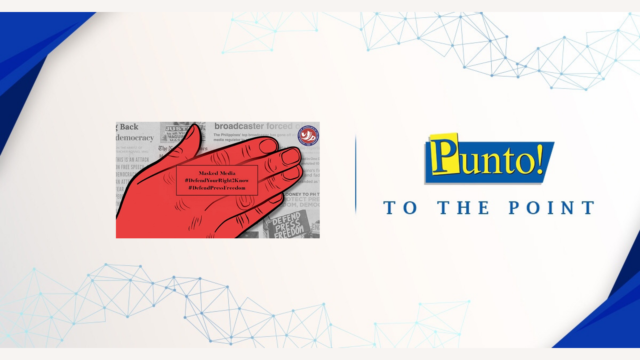THE NATIONAL Union of Journalists of the Philippines takes strong exception to Manila Times columnist Rigoberto Tiglao’s irresponsible characterization of our organization as a “Red front”.
It is not only untrue, it also perpetuates the dangerous narrative that journalists are communists or rebel sympathizers for reporting that does not parrot what the government says. It also the kind of labeling that has raised concerns over how the Anti-Terrorism Act will be implemented.
In his January 21 column, Tiglao urges a “purge” of so-called “Red reporters” and cites reports on the release of Juanito Itaas — who was convicted for the 1989 killing of US Army Col. James Rowe and who has since served the sentence for that conviction — as proof that the media has been “penetrated by communist cadres” and sympathizers.
The use of the term “political prisoner” to refer to Itaas could only have come from the Communist Party of the Philippines, he said.
While the definition of who and what a political prisoner is remains debatable, Itaas has been referred to as a political prisoner since the 1990s, when the Ramos administration granted amnesty to persons “who may have or may have committed crimes…in pursuit of political beliefs.”
The Philippine Daily Inquirer — a newspaper that Tiglao says “takes the Red cake”, presumably a bibingka — reported on Dec. 22, 2021 that “Itaas was counted among the insurgents granted amnesty under Proclamation No. 347 series of 1994 of then President Fidel V. Ramos.”
The Inquirer also noted that “the attempted murder charge against Itaas was covered by the amnesty, but not the murder charge.”
None of the reports omitted the judicial fact that Itaas was convicted. Neither did they justify, much less glorify, Rowe’s murder. Some noted, however, that Itaas claimed to have been tortured into confessing.
In his column, Tiglao also maliciously singles out an NUJP officer for reports while at the Manila Times that were “so sympathetic to a labor union on strike,” saying that “many of her articles on the issue were lifted from the manifestos of that labor union.”
It is unclear which stories Tiglao meant, but quoting from a manifesto or a statement does not necessarily equate to sympathy with who said it. If it were so, quoting government statements defending alleged rights violations and killings in the “war on drugs” would be an endorsement of those acts.
In any case, most media workers are overworked, underpaid and have more in common with laborers forced to go on strike than they do with columnists in air-conditioned offices.
That labor issues are not as widely reported and that writing about them is somehow proof of being a communist sympathizer is the bigger anomaly here.
NUJP has members from across the political spectrum because there is no ideological test for being a member. Neither should there be one for being a journalist.
(NUJP statement, 21 Jan. 2022)





